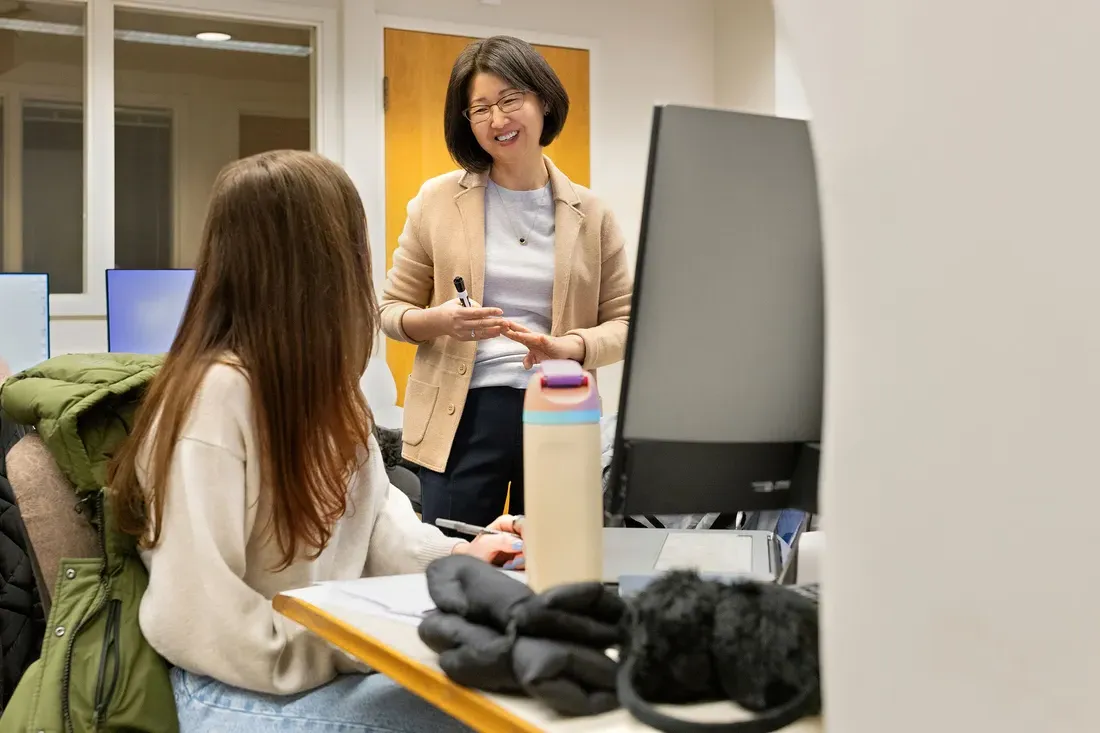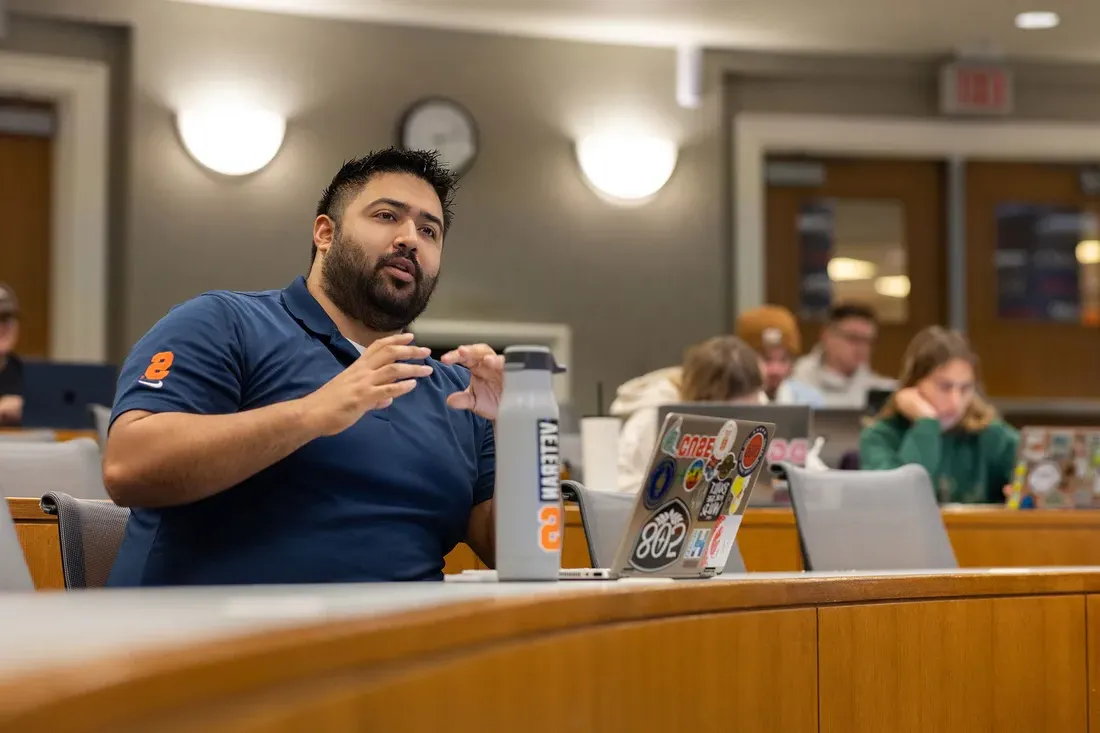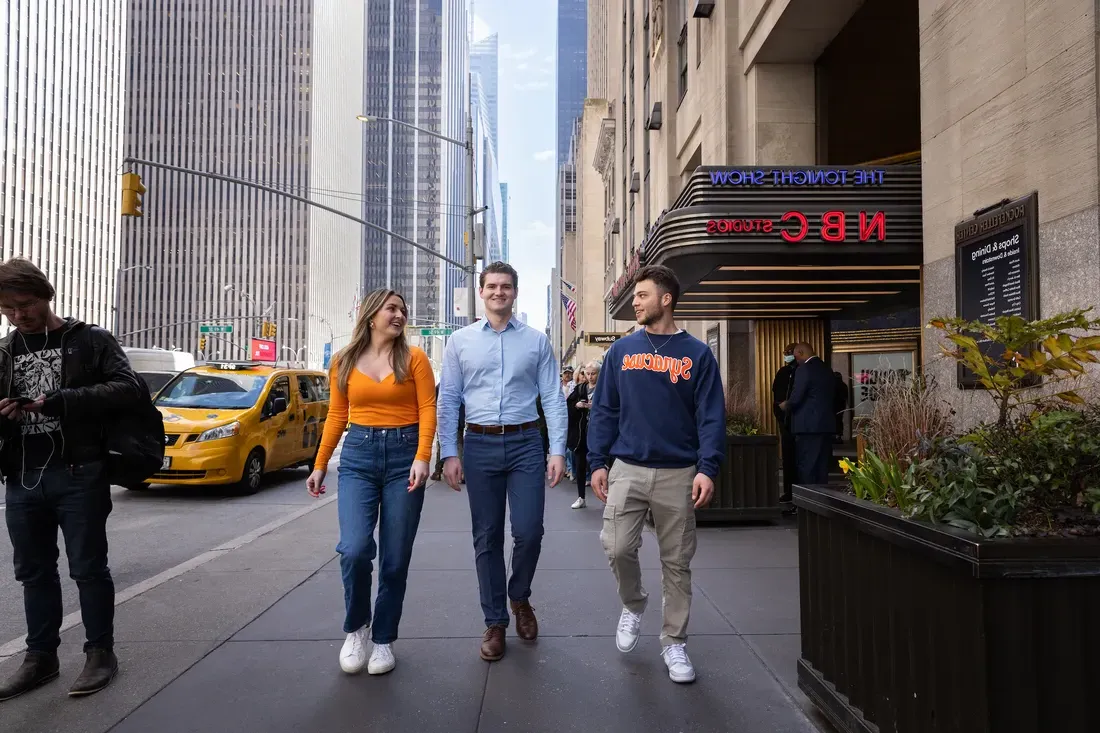
Historically, women have been underrepresented in the fields of science, technology, engineering and math (STEM). But at Syracuse University, many of our award-winning and nationally recognized faculty in the STEM fields are women. They are doing innovative research that will shape our future and, through their mentorship and teaching, supporting the next generation of STEM leaders.
Meet five of these trailblazing researchers.
Aesoon Park helps us understand why we make the health choices that we do
Aesoon Park, professor of psychology in the College of Arts and Sciences, explores the dynamic interplay of individual characteristics and social-environmental influences in the choices young people make that have consequences to their health—such as alcohol consumption or sleep habits. “Different individuals experiencing similar circumstances can respond quite differently, and the decisions people make can change drastically over time. We are trying to understand why and how choices shift over the course of a person’s development.” Her work, which has been supported by the National Institutes of Health (NIH) for more than a decade, could lead to a more nuanced understanding of the reasons for health disparities among underserved populations. Park has also developed a range of student research and mentorship programs in support of students from communities that are underrepresented in science.

In addition to her research on choices that affect health, Aesoon Park is dedicated to fostering the next generation of researchers.
Alison Patteson studies how cells move, regenerate and respond
Physics professor Alison Patteson’s research is situated at the intersection of physics, biology and engineering. She was recently awarded a range of prestigious honors, including a National Science Foundation CAREER Award, a Cottrell Scholar Award, a Sloan Research Fellowship and the 2024 Maria Goeppert Mayer Award. Patteson studies how biological systems—animal cells and their components, and bacteria—respond to and navigate their physical environments. “I’m interested in living materials and what they can do that nonliving materials, like concrete and rubber, can’t do—such as regeneration and self-pattern formation,” she says. Patteson’s work is central to the BioInspired Institute, which supports research into complex biological systems and living materials and contributes innovative insights toward addressing global health and development challenges.

Alison Patteson’s lab delves into how biological systems respond to and move in their environments—research that could have medical applications in areas ranging from wound healing to cancer treatment.
Qinru Qiu is making computing more energy efficient
Professor Qinru Qiu, in the College of Engineering and Computer Science, is a leading researcher in green computing, with a focus on advancing energy efficiency. She was recently named a Distinguished Member of the Association for Computing Machinery, the most prestigious association of computing professionals, and was elevated to IEEE fellow in recognition of her contributions to the modeling and optimization of energy-efficient computing systems. One of her primary research areas is in the development of neuromorphic computing, which is inspired by the ways biological neural systems represent and process information, and the physical dynamics of the brain’s computing and memory structures. Through her work, Qiu aims to create more energy-efficient computing hardware and software with sophisticated learning capabilities.

Collaborations with industry leaders allow students in Qinru Qiu’s lab to gain professional experience while working on the urgent need for more energy efficient computing.
Mirna Skanata explores how decisions form in a brain
Mirna Skanata, professor of physics and recent recipient of the competitive McKnight Technological Innovations in Neuroscience award and an NIH Maximizing Investigators’ Research Award, jokes that she is devoted to understanding how maggots think. Employing a custom-developed tracking microscope, Skanata can watch the activity of individual neurons in fruit fly larvae, as they move about their environment. The goal, she explains, is to understand how information about the sensory environment gets processed and turned into decisions within the brain. The work of her interdisciplinary lab, which draws on neuroscience, molecular biology, engineering and computer science and is part of the BioInspired Institute, holds implications for broader fields, including potential insights into neurological diseases.

Mirna Skanata uses advanced imaging technology to gain insights into how decision making happens at the neural level.
Sarah Woolf-King is developing effective and accessible therapy
Sarah Woolf-King G’10, a professor of psychology, was recently awarded a five-year grant from the NIH to lead a study assessing the efficacy of a novel treatment aimed at reducing alcohol use and improving coexisting psychological symptoms, such as depression or anxiety, in people living with HIV. Woolf-King adapted an intervention based on one that has been used successfully to help people quit smoking, and that is promising for its accessibility and ability to treat multiple co-occurring mental health symptoms. It could prove to be an invaluable resource for those coping with addiction and chronic illnesses. Woolf-King says that her commitment to this area at the intersection of psychology and health is motivated, in part, by the dedication and compassion of the health care professionals, co-investigators and patients with whom she collaborates.

Sarah Woolf-King G’10 specializes in areas of addiction and chronic disease and has conducted research in communities across the world.


